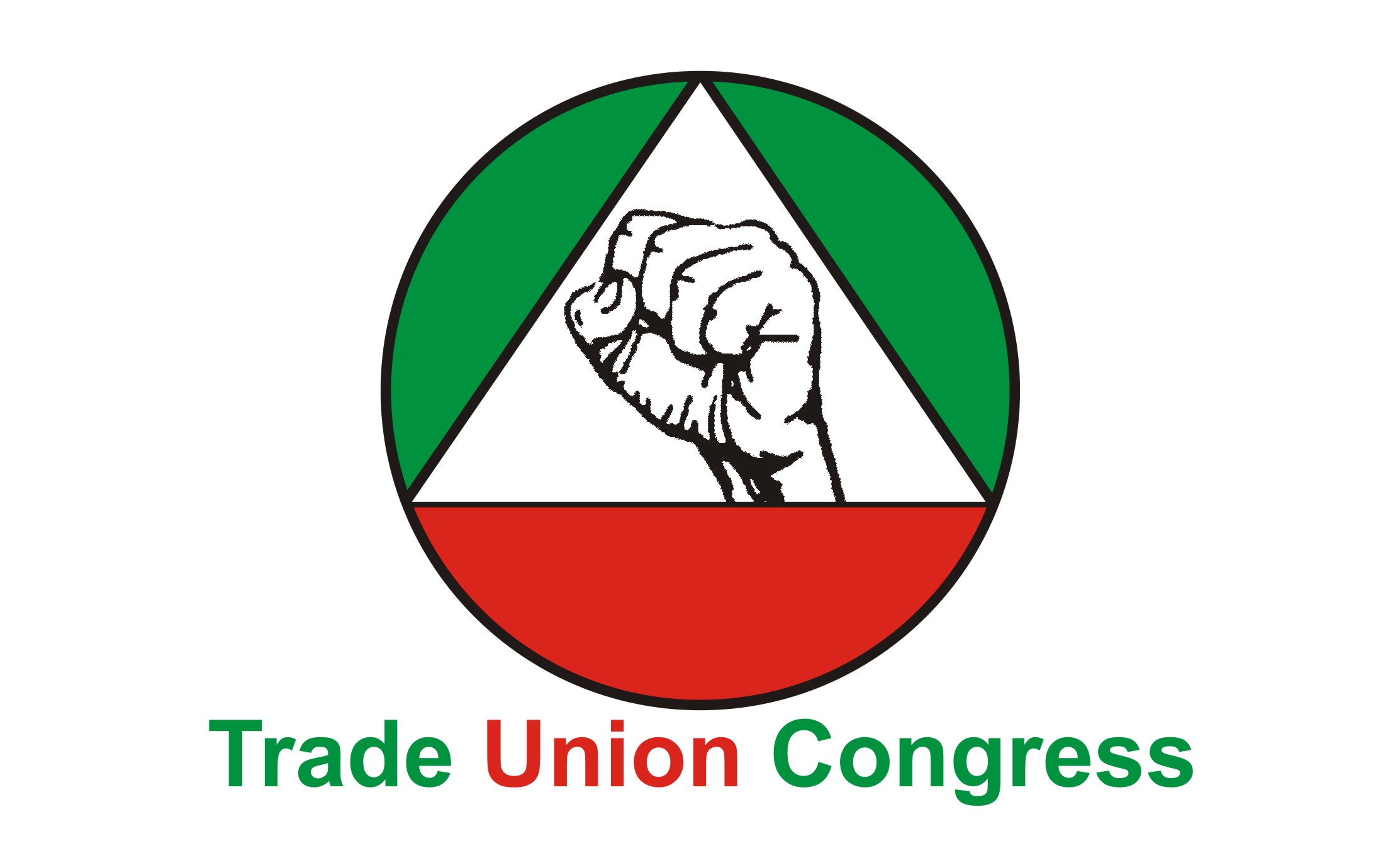News
Nationwide Strike: Stock Homes With Food, Others, Labour Tells Nigerians
The Federal Government will today meet with the representatives of the organised labour in an effort to prevent the nationwide strike called by the Nigeria Labour Congress.
However, the NLC has advised citizens to stock their homes with food items, medicines and other essential things ahead of the commencement of its seven-day strike to protest the removal of fuel subsidies and the escalating cost of living in the country.
The warning, it noted, had become necessary because the strike would cripple the country as movement would be severely curtailed as commercial transport operators would withdraw their services, while markets, schools and healthcare facilities would be forced to shut down.
The Assistant General Secretary, NLC, Chris Onyeka, said in an interview with one of our correspondents that the citizens should also minimise their movements so as to avoid being stranded.
The Tide source reports that the NLC had given the government a seven-day ultimatum with threats of a nationwide strike scheduled to commence on Wednesday, August 2, 2023. The labour movement in a statement signed by its National President, Joe Ajaero, accused the Tinubu-led Federal Government of failing to meet up with the demands it presented to it following the removal of the subsidy on Premium Motor Spirit, popularly known as petrol, which caused an astronomical rise in the pump price of the commodity.
Following the announcement of the strike by the NLC, the government team immediately called for an emergency meeting with the organised labour comprising the NLC and Trade Union Congress with a follow-up meeting on Friday at the State House.
However, officials of the organised labour angrily stormed out of the meeting following the alleged failure of the government team to show up.
Onyeka noted that the labour team would meet with the government on Monday, adding that the outcome of the meeting would determine the next step.
He said, “Nigerians should be prepared. That’s what we are saying. Being prepared means you have to stock food in your house and be economical with your movement at this particular point in time so as to avoid being stranded. It is going to be a nationwide mass protest and we are sure that it will affect every corner of the country. We are seriously mobilising across the nation. We are currently at work at the secretariat alongside the CSOs.
“We may not shut down the power supply system, but as the protest goes on, we may shut down other places depending on the response of the government. The (Friday) meeting didn’t hold at all. The government side was not prepared. The representatives were not available. They didn’t show any seriousness towards what they were doing. One of the things we do is hold dialogues. We don’t run away from the table anytime they call us. We are having another meeting with them on Monday.”
The Nigeria Union of Petroleum and Natural Gas workers, and the National Union of Electricity Employees, on Saturday, confirmed that they were mobilising their members to ground the supply of fuel and the national electricity grid from Wednesday in response to the planned mass protest called by the NLC.
The General Secretary, NUPENG, Afolabi Olawale, told our correspondent, “The congress has taken a unanimous decision and it is mandatory that every affiliate should obey the directive of the Nigeria Labour Congress.”
When probed further to confirm if NUPENG was mobilising its members to halt the lifting of petroleum products, Olawale replied, “That’s it. I’ve given you an answer.”
On their part, electricity workers stated that they would shut the national power grid as it was binding on all employees in the sector to join the mass protest.
The acting General Secretary, NUEE, Dominic Igwebuike, stated, “The NUEE is an affiliate of the NLC and I’ve told you that we will join the strike action.
“The issue is that if there’s a deadlock between labour and the government; that means that the mass protest is still going on, and definitely electricity workers, as an affiliate of the NLC, will partake in the mass protest.
“So, all workers in the power sector will join the mass protest on Wednesday, August 2, 2023. It is binding on every staff member to join the strike action. So, if it results in a blackout, the only option is for the government to listen to us if it wants power to return.
“The government should listen to the Nigerian masses who are going through serious suffering right now. That is the only thing we are asking for. So, for now, the protest is going to hold, unless there is a further directive from the NLC.”
The National Deputy President, TUC, Tommy Etim, blasted the government over the lack of seriousness shown so far with regard to the negotiations.
“When we got to the Villa on Friday, we waited for almost two hours at the gate for clearance with no intervention. It was after two hours that we were allowed in. By the time we got to the point of the meeting, we realised that the team representing the government failed to show up. So, it is wrong to actually say labour stormed out of the meeting. How can labour storm out of a meeting that did not hold? We felt very disappointed because we did not expect this from the government,” he said.
News
Don’t Attend Nocturnal Meetings To Declare War On Rivers, Fubara Tells New CP

Rivers State Governor, Sir Siminalayi Fubara, has advised the new Commissioner of Police posted to the State, Olugbenga Adepoju, to resist the temptation of attending nocturnal meetings that will make him declare war on Rivers people.
Rather, the Governor urged him to put the general interest of the people of the State above other considerations so that he can work to ensure that peace prevailed and there is stability.
Governor Fubara gave the advice when he received CP Olugbenga Adepoju, the 47th Commissioner of Police, Rivers State Command, on courtesy visit, at Government House in Port Harcourt, last Friday.
The Governor said: “You are not a new person in our State. You’ve been here, more especially, in charge of Operations. It then means if I start to talk about my story, it’ll connect with your activities in Operations. But I am not going to talk about my story.
“But the good thing here is, you said something that I want to really anchor on. Your duty, as it stands now, is to work with the government, work with other sister agencies to maintain law and order, protect lives and property of the people of Rivers State.
“Be apolitical, as you just read in your address. Don’t go to nocturnal meetings in people’s houses, and in the morning, you come and declare war on Rivers people. That is the only advice I will give to you.”
Governor Fubara charged the CP, who is already conversant with the Rivers State terrain and its associated security challenges, to draw up a holistic plan on how to tackle the twin problem of cultism among the youths and kidnapping incidences in boundary communities.
Governor Fubara said his administration is not failing on its responsibilities to security agencies to sufficiently address those issues and save Rivers people, adding, “But the primary duty of this team, these particular challenges are rested on the police. So, please, take this one as my own assignment (to you).
“While you are carrying out the larger assignment that your people from headquarters will send you, also make sure that you look for every way possible to reduce issues of cultism because it is affecting our secondary schools, it is affecting our primary schools with students growing to become monsters, which is also leading to other issues like kidnapping and others.
“It starts from somewhere. So, we must also get to the root and reduce it. I know we cannot totally eliminate it, but, somehow, let us look for a way to reduce it.”
Governor Fubara said the former CP to the State had succeeded because he maintained healthy synergy with the State Government, and assured that the same level of support will be provided to the new CP, if he adheres to the tenets of professionalism, stressing, “On our part as a Government, we will continue to support you to make sure you succeed. Your success here will mean more elevation for you. If you have a very bad record here, whether you like it or not, it will one day in the course of your profession, affect your growth.”
In his address, Rivers State Commissioner of Police, CP Olugbenga Adepoju, expressed profound gratitude for the opportunity given to him to serve the resilient and vibrant people of Rivers State as the 47th Commissioner of Police.
CP Adepoju said he is fully aware of the complex security challenges in the State, and is determined to do everything professionally to confront them with innovation.
He said, “We will strengthen our intelligence gathering capabilities, enhance our rapid response mechanism, and most importantly, foster deeper trust and collaboration with the community we serve. Our Command will remain firmly apolitical, standing as a neutral and impartial institution, dedicated solely to upholding law and order. This commitment is vital to maintaining the trust and confidence of the people we protect.”
CP Adepoju also said: “While we will engage constructively with political leaders and key stakeholders to secure necessary resources and support, our engagement will always be conducted with professionalism and integrity”.
Meanwhile, Governor Siminalayi Fubara, and the State Commissioner of Police, Olugbenga Adepoju, have decorated two officers in Government House with their new ranks of Deputy Superintendent of Police (DSP).
They include the Personal Security Officer to the Governor, Anthony Peter, who was recently promoted from Assistant Superintendent of Police (ASP 1) to Deputy Superintendent of Police (DSP); and Provost Marshal, Government House, John Wakama, who was also promoted from Assistant Superintendent of Police (ASP 1) to Deputy Superintendent of Police (DSP).
Both the Governor and the Commissioner of Police were assisted at the short event by the wives of the newly promoted officers.
The decoration ceremony was performed shortly after the courtesy visit to the Governor by the State Commissioner of Police at the Government House, Port Harcourt, last Friday.
News
TUC Rejects VAT Hike, Urges Pro-people Tax Reforms

The Trade Union Congress of Nigeria has opposed the proposed increase in the Value Added Tax rate, as outlined in the Federal Government’s Tax Reform Bills, warning that the move could worsen the economic hardship faced by Nigerians.
The Federal Government had proposed a phased VAT hike from the current 7.5% to 10%, 12.5%, and ultimately 15%, a move the TUC described as ill-timed and detrimental to the welfare of citizens already grappling with inflation, unemployment, and a soaring cost of living.
Speaking during a press briefing in Abuja, yesterday, following the union’s National Executive Council meeting held on November 26, 2024, TUC President Festus Osifo said maintaining the VAT rate at 7.5 per cent was crucial to safeguarding Nigerians from additional financial pressure.
“Allowing the Value Added Tax rate to remain at 7.5 per cent is in the best interest of the nation. Increasing it now would impose an additional burden on households and businesses already struggling with economic challenges,” Osifo said.
He added, “With inflation, unemployment, and the cost of living on the rise, higher taxes could stifle economic growth and erode consumer purchasing power.”
The TUC called for a review of the tax exemption threshold, urging the government to raise it from N800,000 to N2.5 million per annum to ease the financial strain on low-income earners.
“This measure would increase disposable income, stimulate economic activity, and provide relief to struggling Nigerians,” Osifo explained.
He said, “The threshold for tax exemptions should be increased to N2,500,000 per annum. This adjustment would offer much-needed relief to low-income earners, enabling them to cope with the current economic challenges.”
The TUC also expressed reservations about the proposed transfer of royalty collection from the Nigerian Upstream Petroleum Regulatory Commission to the Nigeria Revenue Service (NRS), citing risks of revenue losses and inefficiencies.
“Royalty determination and reconciliation require specialised technical expertise in oil and gas operations, which the NUPRC possesses but the NRS lacks. This shift could result in inaccurate assessments, enforcement challenges, and reduced investor confidence,” Osifo warned.
The union commended the government’s decision to retain the Tertiary Education Trust Fund and the National Agency for Science and Engineering Infrastructure, describing their roles as pivotal to the country’s education and technological advancement.
“These institutions have significantly contributed to improving tertiary education and fostering homegrown technologies. Their continued existence is vital for sustained progress in education, technology, and national development,” Osifo said.
Osifo called on the Federal Government to adopt tax policies that prioritise the welfare of citizens and promote equitable economic growth.
“As discussions on the Tax Reform Bill continue, it is our hope that the focus will remain on fostering economic growth and improving living conditions for all Nigerians,” he said.
The TUC reaffirmed its commitment to advocating for policies that enhance the well-being of Nigerians, emphasising that proactive and citizen-centred reforms reflect true leadership.
News
Fubara Inaugurates Road Project To Celebrate Jackrich On Birthday

Rivers State Governor, Sir Siminalayi Fubara, has noted with delight the initiative, love and courage shown by High Chief Sobomabo Jackrich in contributing to improved road infrastructure in his community.
Governor Fubara made the commendation when he visited the country home of Amb Sobomabo Jackrich to celebrate with him on his birthday, and used the occasion to inaugurate a road project executed by the celebrant in Usokun Town in Degema Local Government Area.
Amb Sobomabo Jackrich, also known as Egberepapa, is a prominent Niger Delta leader and National Chairman of Simplicity Movement.
Governor Fubara said the road project, solely funded and completed by the celebrant, shows how committed he is to making life better for residents in his community.
The Governor said: “Let me on behalf of the guests that are here to celebrate with our brother, not really an official engagement, but on a personal note, also share a wonderful moment with our people.
“Our celebrant is not just celebrating his birthday, but he is also giving back to the society. So, I join him and all well-meaning people that believe in his course to commission this project that he has embarked on in his own accord for the betterment of his people.
“I want to say that with what I am seeing here, there may be a few things that we can also do to make this project more meaningful to the people in terms of streetlights. On our own, we are going to support him to complete it.”
Governor Fubara, who also joined the celebrant to cut the birthday cake, prayed for strength and longevity for the celebrant.







